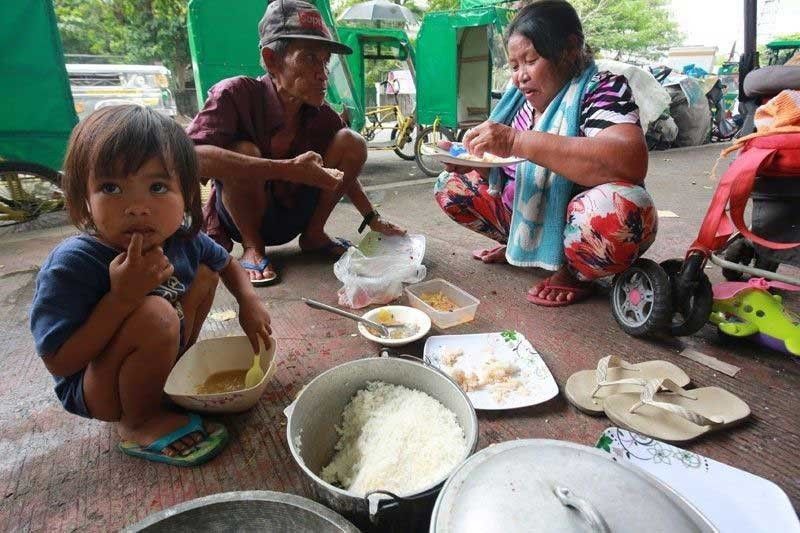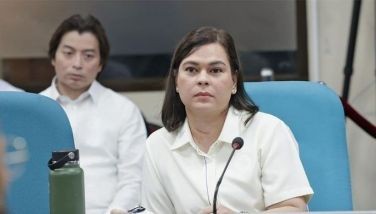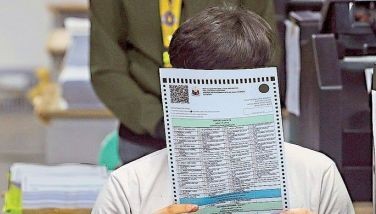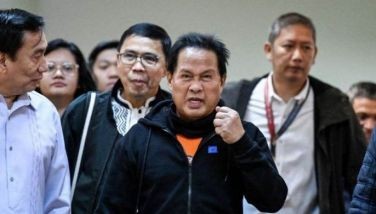Government to release P10 billion cash aid for poor Filipinos

MANILA, Philippines — As prices of basic goods continue to soar, the government will release P10 billion next month under its unconditional cash transfer (UCT) program to ease the burden of some 10 million Filipinos living in poverty.
Presidential spokesman Harry Roque said yesterday the Department of Social Welfare and Development (DSWD) would take charge of the distribution of the amount, while the Department of Transportation (DOTr) is preparing cash vouchers for distribution to public utility jeepney (PUJ) drivers to help them deal with skyrocketing diesel cost.
President Duterte directed his Cabinet members last Monday to update him on the impact of the controversial Tax Reform for Acceleration and Inclusion (TRAIN) law, amid calls for the measure’s suspension or even scrapping.
Under this year’s national budget, some P24.5 million has been appropriated as subsidy for the Tax Reform Cash Transfer Project.
UCT beneficiaries are those identified by the DSWD as belonging to the bottom 50 percent poorest households.
“During the last Cabinet meeting, the DSWD and the DOTr have announced the steps they are undertaking to ease the burden of the TRAIN implementation,” Roque said at a press briefing at Malacañang.
“There is P10 billion to be distributed to our poorest households to ease the impact of the TRAIN… This will cover 10 million Filipinos,” Roque said.
Cash vouchers of P5,000 each is being eyed under the Pantawid Pasada Program spearheaded by the DOTr, Roque said.
“The amount is around P5,000 but this is not final because it will still depend on the revenues collected under the implementation of TRAIN,” he said.
Based on the implementing guidelines of the UCT released by the DSWD last February, UCT beneficiaries are those already under the Pantawid Pamilyang Pilipino Program (4Ps), those who are part of the Social Pension Program under the Senior Citizens Act and the households in the database of the National Household Targeting System for Poverty Reduction (NHTS-PR).
The cash grant is P200 per month in the first year of implementation, and P300 thereafter.
At the same time, Roque clarified that the President was justifying the excise tax on sugar or sweetened beverages when he mentioned the need to implement more sin taxes to boost funding for government programs.
“The President was just justifying the higher excise taxes imposed on sweet beverages because these beverages are not healthy to begin with,” Roque said.
“In the same way that he justified the very high excise tax imposed on tobacco, because the President as a former smoker himself – no one should actually continue smoking because it is deleterious to our health,” Roque added.
At the same press briefing, Roque announced that the Central Bank reported that foreign direct investment inflows amounted to $2.2 billion for the first quarter of 2018 – or a 43.5 increase from the $1.5 billion recorded in the same period in 2017.
TRAIN review backed
Pro-administration members of the House minority bloc, meanwhile, have expressed support for a review of the TRAIN law and a reduction in the excise taxes on diesel, gasoline and other oil products.
“We are for reviewing the TRAIN law and for reducing fuel taxes,” Minority Leader Rep. Danilo Suarez of Quezon yesterday told the Serye Café’ news forum in Quezon City.
His deputy, Rep. Lito Atienza of party-list group Buhay, said the government could afford cutting oil taxes since revenue agencies have reported an increase in collections that is more than the projected P130-billion annual gain from TRAIN.
He said the Bureau of Internal Revenue (BIR), Bureau of Customs and Bureau of Treasury all posted collection improvements for the first five months of this year due to higher taxes and the growth of the economy.
“The BIR alone reported an increase of more than P100 billion. Clearly, the government can afford to reduce oil taxes to ease the suffering of our people from rising prices of products and services,” he said.
Suarez recalled that during the deliberations on TRAIN in the House, he appealed to Finance Secretary Carlos Dominguez III that the so-called tax reform law be made “revenue neutral, meaning it should not result in a revenue gain for the government.”– With Jess Diaz, Marvin Sy
- Latest
- Trending































